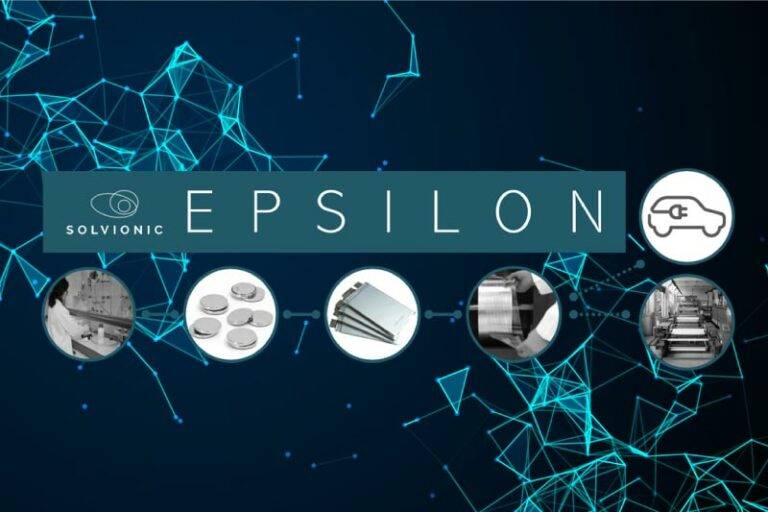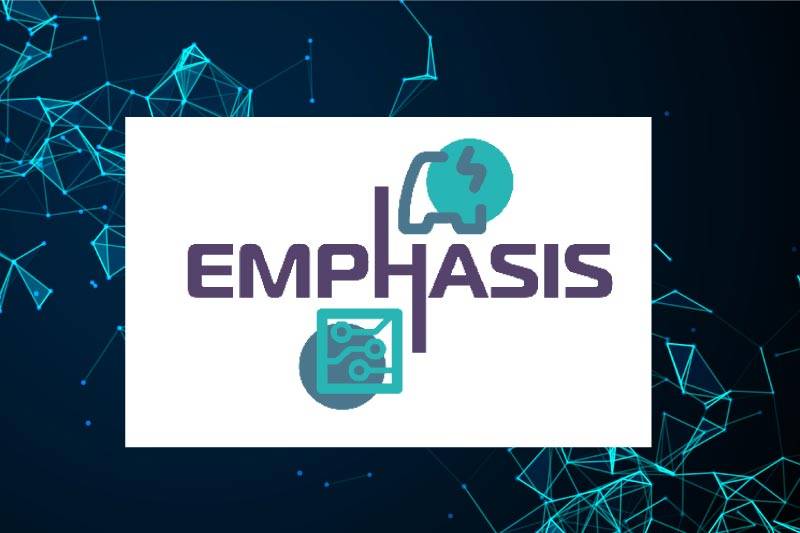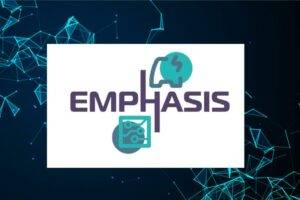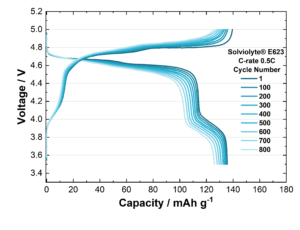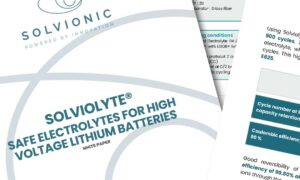The new generation of batteries SUPPORTED BY France 2030
As part of the France 2030 plan – Innovative solutions and technologies for batteries – SOLVIONIC’s EPSILON R&D project has just been awarded €1.4m in funding over 3 years. The aim is to develop new solid electrolyte formulations that will lead to higher-performance, more reliable batteries. This funding from BPI France follows the EPSILON project’s approval by the AXELERA chemicals cluster.
The EPSILON project (Electrolytes Polymères Solides pour les nouvelles générations de batteries et supercondensateurs dédiés à la mobilité – Solid polymer electrolytes for new generations of batteries and supercapacitors dedicated to mobility), aims to extend the range of electrolytes offered by SOLVIONIC, historically liquids, to the field of solids, with significant gains in performance and safety.
THE BENEFITS OF SOLID POLYMER ELECTROLYTES (EPS)
The intrinsic composition of the films making up ionic liquid-based EPS offers improved conductivity for high-power applications. Non-flammable, robust (mechanical flexibility) and with greater durability (charge/discharge cycles), this technology is particularly suited to constrained applications such as those linked to mobility. Its compatibility with a wide range of electrodes, including future high-potential technologies (> 5 V), makes it a particularly versatile range of electrolytes for 4th-generation batteries.
ONE PROJECT, TWO TECHNOLOGIES
Two new generations of SPE will be developed with the aim of bringing them up to prototype scale in real-life conditions (TRL 8). A first generation of EPS already marketed for R&D studies (TRL 4) will be brought into production on a pilot scale for batteries intended for electric vehicles, drones, aircraft, etc. Solvionic is also developing a second generation based on new materials designed and synthesised using in-house know-how.

